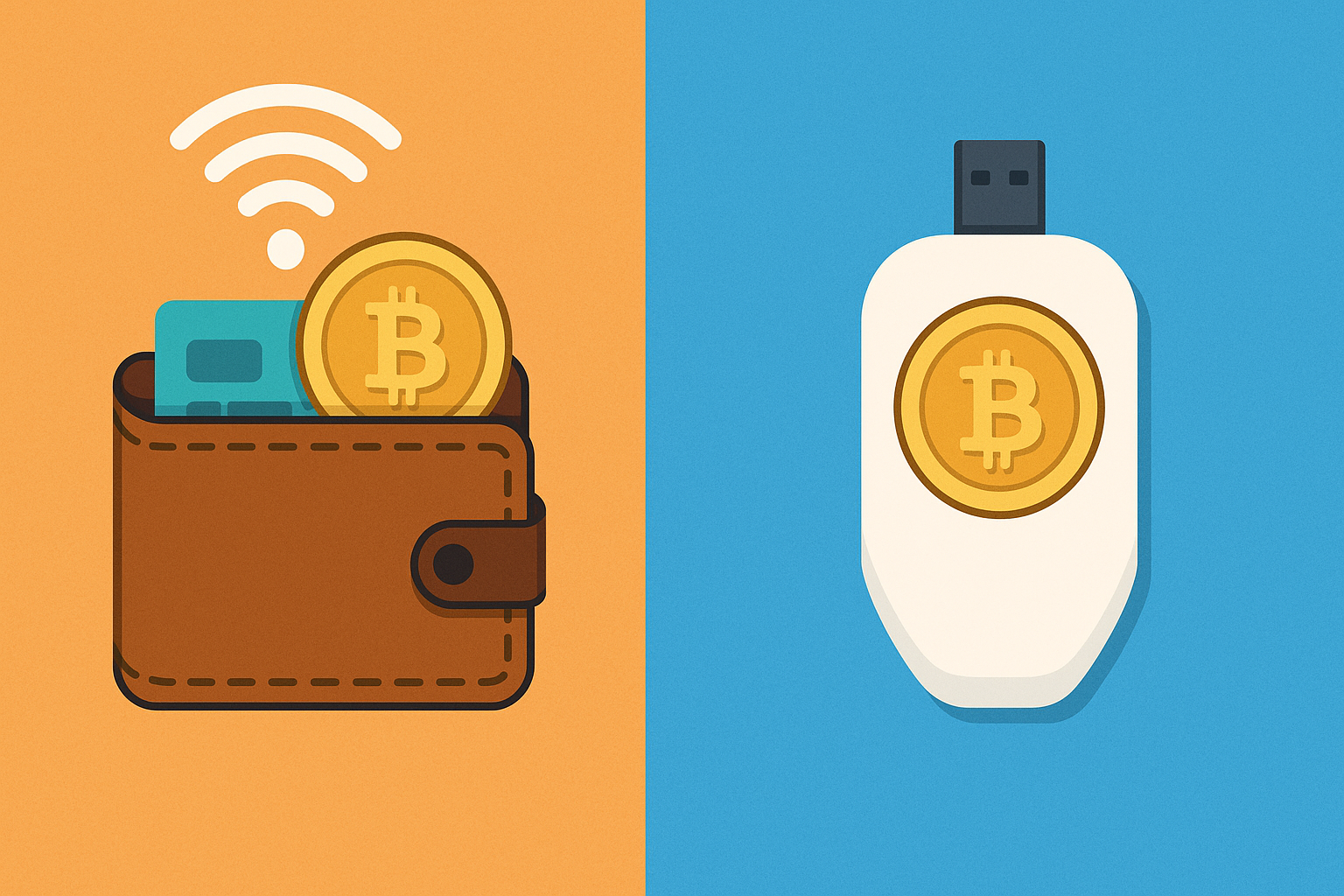When entering the world of cryptocurrencies, keeping your digital assets safe is crucial. Two popular ways to store cryptocurrencies are hot wallets and cold wallets. Understanding the differences between these two methods can help you decide which option is best for you.
Contents
What is a Hot Wallet?
A hot wallet is a cryptocurrency wallet that is connected to the internet. These wallets are typically easy to access and convenient for everyday transactions. Examples of hot wallets include mobile apps, web-based wallets, and desktop wallets.
Pros of Hot Wallets
- Convenience: Hot wallets are easy to access and use from anywhere with an internet connection. This makes them ideal for frequent transactions, trading, or paying for goods and services.
- User-Friendly: Hot wallets are typically designed with user-friendly interfaces, making them ideal for beginners.
- Speed: Transactions using hot wallets are faster since the wallet is always connected to the internet.
Cons of Hot Wallets
- Security Risks: Being connected to the internet exposes hot wallets to potential hacks, malware, and phishing attacks.
- Dependence on Third Parties: Many hot wallets rely on third-party providers, which could be vulnerable to outages or security breaches.
- Potential for Loss: If you lose access to your hot wallet through forgotten passwords or compromised devices, you might lose your assets permanently.
What is a Cold Wallet?
A cold wallet, also known as cold storage, is a cryptocurrency wallet that is offline. These wallets store your private keys without an internet connection, making them significantly safer against online threats. Examples of cold wallets include hardware wallets, paper wallets, and offline computers.
Pros of Cold Wallets
- Enhanced Security: Since cold wallets are offline, they are immune to online hacking attempts, making them ideal for long-term storage and large amounts of cryptocurrency.
- Control and Ownership: With cold wallets, you have complete control over your private keys, which means you’re not dependent on third-party services.
- Safe for Long-Term Storage: Cold wallets are perfect for securely storing assets you don’t plan to use frequently.
Cons of Cold Wallets
- Less Convenient: Cold wallets are not as easily accessible or convenient for regular transactions, as they require extra steps to transfer funds.
- Higher Cost: Hardware wallets, a common type of cold wallet, often come with a cost, whereas many hot wallets are free.
- Risk of Physical Damage: Physical damage, theft, or loss of the cold wallet device or paper could result in permanent loss of your cryptocurrency if backup measures are not in place.
When Should You Use a Hot Wallet?
Hot wallets are best for those who frequently trade cryptocurrencies or regularly spend crypto on goods and services. They offer ease of access and speed, making everyday transactions convenient. However, you should keep smaller amounts in hot wallets due to their security risks.
When Should You Use a Cold Wallet?
Cold wallets are suitable for securely storing larger amounts of cryptocurrency over the long term. If your goal is long-term investment and you rarely need immediate access to your funds, a cold wallet is an excellent choice. Ensure you securely store your recovery phrases or backups to avoid loss.
Balancing Hot and Cold Wallets
Many crypto users adopt a balanced approach, using both hot and cold wallets. Hot wallets hold smaller amounts for quick access, while cold wallets secure larger holdings. This strategy combines convenience and security effectively.
Conclusion
Choosing between hot and cold wallets depends on your needs. Hot wallets offer convenience and speed, ideal for daily transactions. Cold wallets provide superior security, making them perfect for long-term storage. By understanding the pros and cons of each, you can safely manage your crypto assets according to your specific needs.




